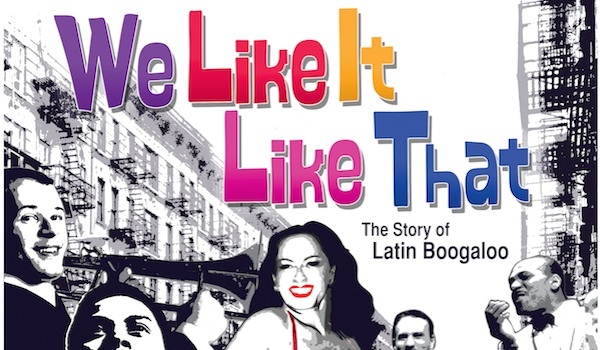
We Like It Like That (2015) Film Review, a movie directed by Mathew Ramirez Warren, and starring Joe Bataan, Johnny Colon, Ricardo Ray, Pete Rodriguez, Joey Pastrana, Tito Ramos, Larry Harlow, Bobby Marin, and Felipe Luciano.
Much has been written about the ability of music to tell listeners about the world the musicians’ inhabited as it does the musicians’ themselves. It is in this tradition that Mathew Ramirez Warren’s We Like It Like That follows, inviting viewers to revisit the brief boogaloo craze of the 1960’s. Speaking with several of the genre’s key players, we discover that there was much more to the story of boogaloo than bored teens looking for something to do on a Saturday night.
Shot mainly in New York City, the film takes us to the old stomping grounds of such instrumental (no pun intended) figures’ as Johnny Colon, Joe Bataan and Pete Rodriguez. Growing up in a true melting pot of different cultures and ethnicities, it is little wonder that a form of music that borrows from as many backgrounds as boogaloo does arose in the sprawling metropolis. With Puerto Rican and Cuban immigrants arriving in New York and settling alongside the already-established African-American community in the 40’s and 50’s, the future musical pioneers grew up in an environment where food and basic considerations of social harmony brought the two communities together, helping in no small way to blur racial differences. As the subjects of the film affectionately recall, this intermingling of taste soon extended beyond the realm of cuisine and into the world of music.
Uninterested in the traditional music their parents and grandparents listened to, the Hispanic and black youth of the city began making their own music, singing songs with Latin rhythms and English lyrics and playing percussion on car fenders. As their musical talent and aspirations became more sophisticated however, the challenges thrown their way became even more so. Mainstream Latin musicians were unable or unwilling to teach their craft to their communities, and music conservatories offered no programs for such music at the time. Many of those who endeavored to study more traditional music repertoires were prevented from doing so either by poverty or by discrimination, with Colon in particular recollecting one instance in which he was rejected by a school in favor of several students who were demonstrably less qualified than he was solely because they were white and he was not.
For those who loved the music however, there was no challenge too great for them to overcome. Larry Harlow, an accomplished multi-instrumentalist and one of the few non-Hispanic whites interviewed in the film, traveled down to Cuba to study music similar to the kind he and his black and Hispanic neighbors and friends listened to. Joe Bataan, a pianist and singer born to African-American and Filipino parents, broke into buildings at night just to practice on the pianos’ inside them as a youth, with a priest finally catching him one night and him insisting that he wasn’t trying to steal anything, just play the piano. Seeing an older Bataan returning to the church and laughing about it with the priest before they saw off the lock on the very same piano so he can play it, one appreciates how far both Bataan and the music he and his compatriots created have come.
Boogaloo may no longer be the music of choice for minority youths, but as the documentary makes clear, it played an invaluable role in resuscitating Latin music. It sparked innovation and changed the lives of listeners in thrall to it’s infectious beat, to say nothing of the men who put their lives into making it. Faced with any number of new types of music, the film’s interview subjects, despite their own initial apprehensions about being supplanted, acknowledge that they were once the fresh young upstarts ready to shake things up and respectfully make way for them. That being said, they express hope that the new generation of Latin musicians will look back on them with the respect they now have for the predecessors they once wanted little to do with. Thanks to films like We Like It Like That, the roots laid down by boogaloo and it’s practitioners will be remembered long past the next music craze dies out.
Rating: 7/10
Leave thoughts on this review below in the comments section. For more We Like It Like That news, photos, videos, and information, visit our We Like It Like That Page, and consider subscribing to us by Email, “following” us on Twitter, Tumblr, Google+ or “liking” us on Facebook for quick updates. We Like It Like That is currently available for viewing on iTunes.